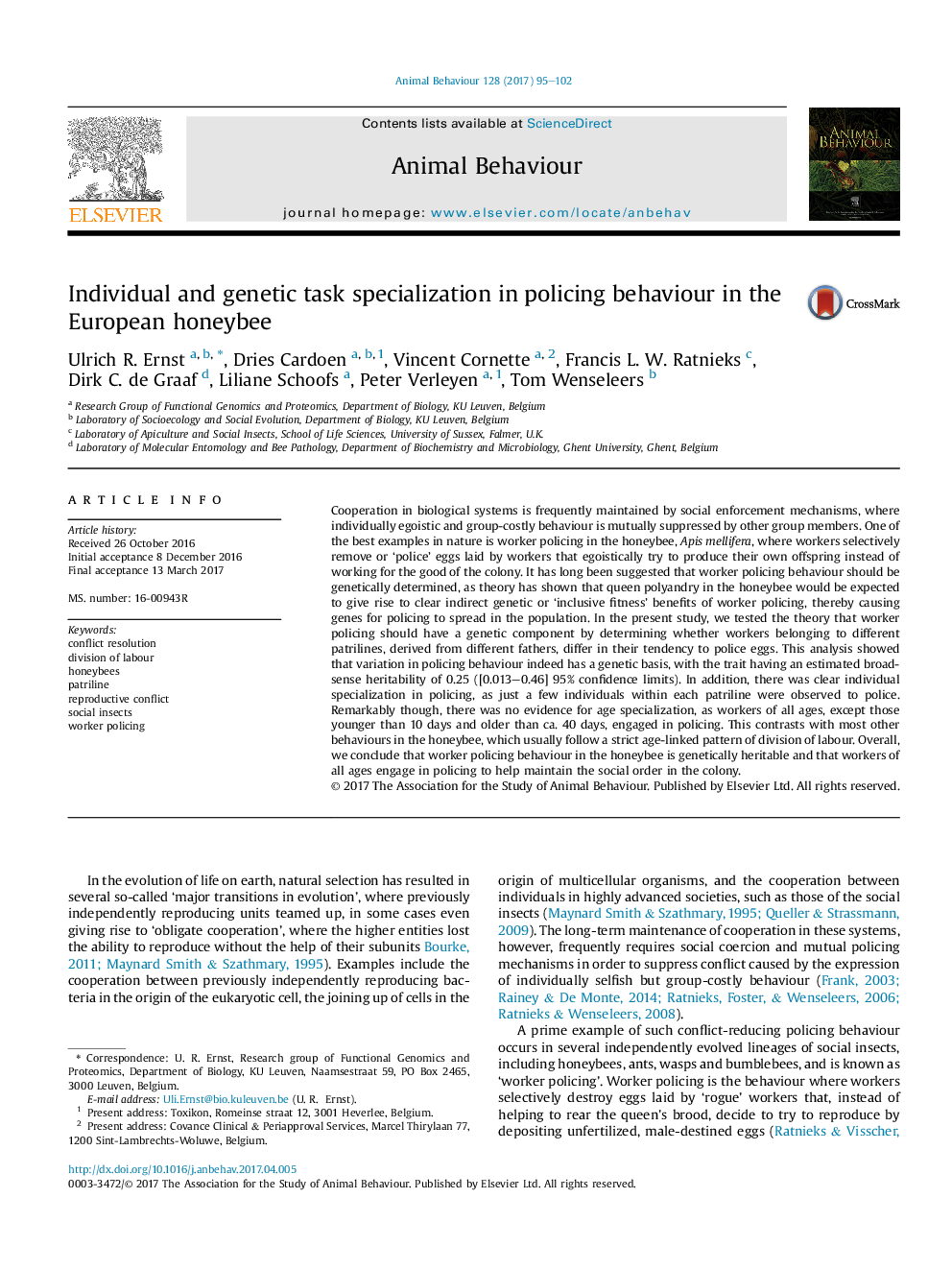| کد مقاله | کد نشریه | سال انتشار | مقاله انگلیسی | نسخه تمام متن |
|---|---|---|---|---|
| 5538461 | 1552200 | 2017 | 8 صفحه PDF | دانلود رایگان |
عنوان انگلیسی مقاله ISI
Individual and genetic task specialization in policing behaviour in the European honeybee
ترجمه فارسی عنوان
تخصص فردی و ژنتیک در رفتار پلیس در زنبور عسل اروپا
دانلود مقاله + سفارش ترجمه
دانلود مقاله ISI انگلیسی
رایگان برای ایرانیان
کلمات کلیدی
حل اختلاف، تقسیم کار، زنبور عسل، پاتریلیک، اختلال تولید مثل، حشرات اجتماعی، پلیس کارگری،
موضوعات مرتبط
علوم زیستی و بیوفناوری
علوم کشاورزی و بیولوژیک
علوم دامی و جانورشناسی
چکیده انگلیسی
Cooperation in biological systems is frequently maintained by social enforcement mechanisms, where individually egoistic and group-costly behaviour is mutually suppressed by other group members. One of the best examples in nature is worker policing in the honeybee, Apis mellifera, where workers selectively remove or 'police' eggs laid by workers that egoistically try to produce their own offspring instead of working for the good of the colony. It has long been suggested that worker policing behaviour should be genetically determined, as theory has shown that queen polyandry in the honeybee would be expected to give rise to clear indirect genetic or 'inclusive fitness' benefits of worker policing, thereby causing genes for policing to spread in the population. In the present study, we tested the theory that worker policing should have a genetic component by determining whether workers belonging to different patrilines, derived from different fathers, differ in their tendency to police eggs. This analysis showed that variation in policing behaviour indeed has a genetic basis, with the trait having an estimated broad-sense heritability of 0.25 ([0.013-0.46] 95% confidence limits). In addition, there was clear individual specialization in policing, as just a few individuals within each patriline were observed to police. Remarkably though, there was no evidence for age specialization, as workers of all ages, except those younger than 10 days and older than ca. 40 days, engaged in policing. This contrasts with most other behaviours in the honeybee, which usually follow a strict age-linked pattern of division of labour. Overall, we conclude that worker policing behaviour in the honeybee is genetically heritable and that workers of all ages engage in policing to help maintain the social order in the colony.
ناشر
Database: Elsevier - ScienceDirect (ساینس دایرکت)
Journal: Animal Behaviour - Volume 128, June 2017, Pages 95-102
Journal: Animal Behaviour - Volume 128, June 2017, Pages 95-102
نویسندگان
Ulrich R. Ernst, Dries Cardoen, Vincent Cornette, Francis L.W. Ratnieks, Dirk C. de Graaf, Liliane Schoofs, Peter Verleyen, Tom Wenseleers,
